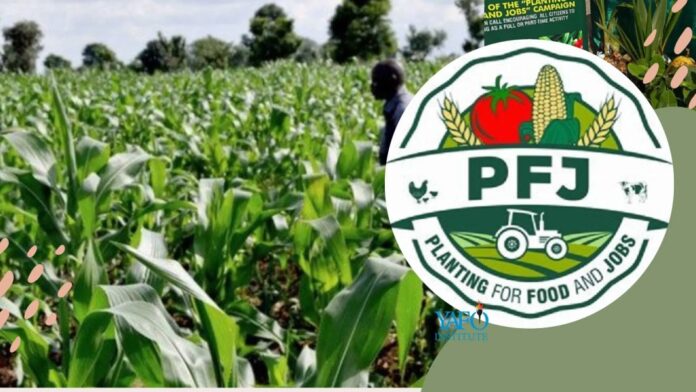The Ministry of Food and Agriculture has allocated GH¢3.3billion for a complete implementation of government’s flagship Planting for Food and Jobs Phase II (PFJ 2.0).
The allotment, as stated in MoFA’s Medium Term Expenditure Framework (MTEF) document for 2024-2027, says government will contribute some GH¢2.7billion of the amount while the remainder is sourced from development partners.
MoFA indicates that with requisite commitment, diligence, collaboration, support and full participation of all actors along the value chain, PFJ 2.0 will make the country self-sufficient in all its staple commodities by the end of 2028. Toward these objectives, the document mentioned that four budget programmes and modules will be implemented.
These programmes are: Crop and Livestock Development; Mechanisation, Irrigation and Water Management; Agribusiness Development; and Sustainable Management of Land and Environment.
Designed to accelerate government efforts toward modernisation and increased competitiveness of the food and agricultural sector, the initiative marks the dawn of an input credit system era – away from input subsidy – as a means of supporting farmers to increase productivity for food crops in the country.
The programme is expected to prioritise commercial agriculture to scale-up production and meet domestic food consumption requirements, create strategic food reserves, support industrialisation and reduce food imports, toward the goal of establishing sustainable food security and resilience.
Claims of policy not benefitting farmers
However, despite the huge financial allocation and positive anticipations, the Peasant Farmers Association of Ghana (PFAG) has consistently made claims that implementation of the policy’s second phase is skewed with several inconsistencies that do not favour farmers, as it is not well-targetted.
These discrepancies, according to the association and many farmer groups, have been creating inconveniences that currently curtail agriculture production.
The association argued that the only way to ensure sustainability of PFJ 2.0 is for politicians to take their hands off the programme and allow technical directors in the ministry to lead with the project’s implementation.
Indeed, PFAG has revealed that about 80 percent of farmers have not been registered on the programme as of third-quarter this year.
Describing the PFJ phase II as uninspiring, PFAG stated that the agriculture sector has been neglected with no direct investment to farmers.
The association explained that MoFA prefers makeshift strategies to tangible and solution-driven measures.
These various challenges, it noted, have led to neglecting plans to expand irrigation projects and improve road networks – which are key components of the policy.








